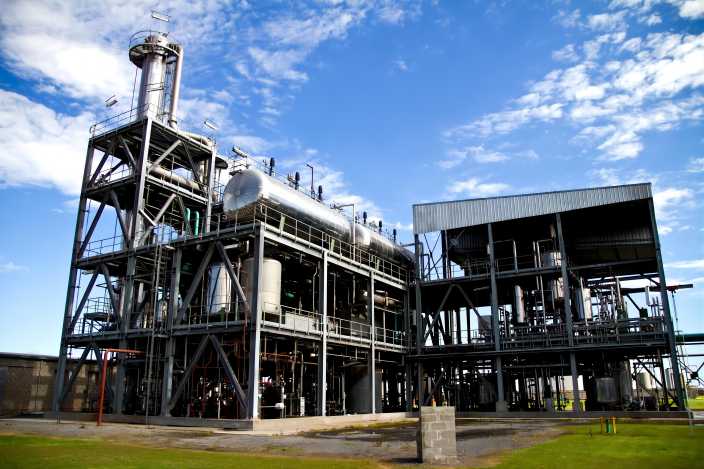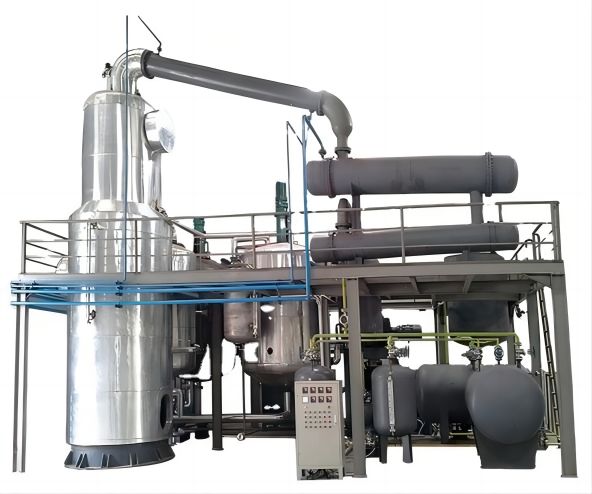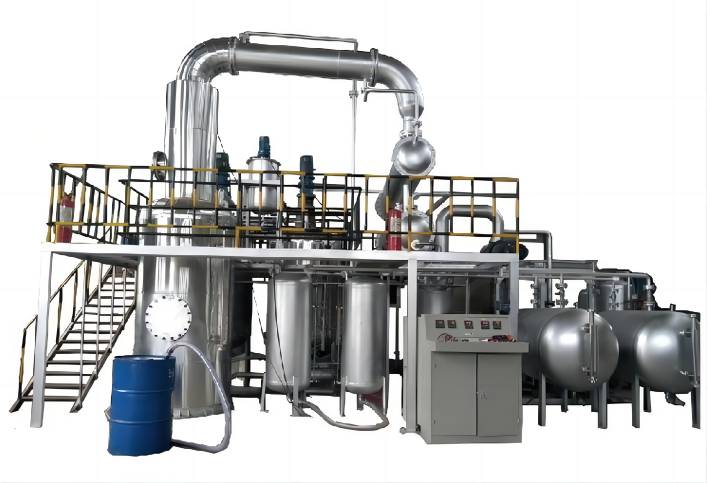Why Responsible Used Motor Oil Disposal is a Must for Our Future?
Though it keeps our engines purring and pistons pumping, used motor oil isn’t just about smooth rides. When its journey ends, it can morph into a lurking environmental threat if not disposed of responsibly. This article plunges into the oily dilemma, examining the dangers of improper disposal, the origins of waste oil, and the global landscape of used motor oil recycling. We’ll explore responsible practices and culminate in a call for collective action to conquer this challenge and pave the way for a cleaner future, drop by drop.

The Grim Reality: Environmental Ramifications of Improper Disposal
Leaving used motor oil to its own devices paints a grim picture. This seemingly innocuous liquid packs a potent punch. A single gallon can contaminate up to one million gallons of freshwater, rendering it unfit for drinking, irrigation, or aquatic life. Imagine a shimmering lake choked by an oily film, its once vibrant ecosystem suffocated by a toxic soup. This isn’t just an apocalyptic vision; it’s a real-life consequence of neglecting proper disposal.
Soil also bears the brunt of improper disposal. Oil seeps into the ground, poisoning the land and threatening vital microorganisms that sustain plant growth. This can lead to barren landscapes, impacting food production and ecosystem stability. Additionally, improper disposal can pollute groundwater, infiltrating drinking water supplies and posing health risks to humans and animals alike.
From Engine Drain to Environmental Drain: The Journey of Waste Oil
The journey of waste oil begins in the heart of your car. As the engine runs, oil picks up contaminants like metal particles and combustion byproducts. Over time, these impurities accumulate, compromising the oil’s lubricating abilities. This is when your mechanic drains the oil, ushering it into a new phase in its life cycle.
Ideally, this phase involves responsible recycling. However, the reality is often less rosy. In some countries, regulations and infrastructure for proper disposal are lacking. This can lead to dumping in waterways, landfills, or on the ground, where the oil’s environmental damage begins. Additionally, some individuals lack awareness or resources for responsible disposal, resorting to DIY methods that further exacerbate the problem.
Leading the Charge: Global Recycling Champions
Despite the challenges, there are beacons of hope in the global fight against improper disposal. Austria boasts an impressive 97% recycling rate for used motor oil, setting the bar for responsible waste management. This success stems from a well-developed infrastructure with readily accessible collection centers, strict regulations, and public awareness campaigns.
Germany also stands out with a recycling rate exceeding 90%. Their “Altölverordnung” (Used Oil Regulation) mandates manufacturers to collect and recycle used oil, holding them accountable for the end-of-life cycle of their products. These examples showcase the positive impact of strong policy frameworks and public engagement in tackling the issue.

Finding Your Place in the Recycling Chain: Are You a Member?
The responsibility of responsible disposal doesn’t solely rest on the shoulders of governments and corporations. Every driver plays a crucial role in ensuring that used oil finds its way to the right destination. So, are you a member of the used motor oil recycling chain?
If you haven’t already, joining is simple. Take your used oil to designated collection centers, often found at auto parts stores, garages, or municipal recycling facilities. These centers ensure proper handling and transportation to recycling plants, where the oil is transformed into new lubricants, asphalt, or even fuel. By taking this small step, you become an active participant in protecting the environment and conserving valuable resources.
How Do You Dispose of Used Motor Oil?
So, there you stand, staring down a blackened cauldron of used motor oil. Don’t fret! This seemingly villainous goo can be vanquished by the mighty forces of responsible disposal. Every drop diverted from environmental harm is a victory, and here’s how you can be the hero:
- Never unleash the Kraken of contamination: Drains, trash cans, and the open earth shudder at the very thought of your oily foe. These dumping grounds contaminate soil, water, and even your health. Keep the beast contained!
- Secure the prisoner: Imprison your oily captive in a leak-proof container, away from curious children and furry paw prints. Clearly label it “Used Motor Oil” – knowledge is power, even for hazardous heroes.
- Find the recycling portal: Seek out authorized collection centers, often lurking in the dungeons of auto parts stores and service stations. These portals transport the oil to a land of reuse, where it’s reborn into lubricants, asphalt, or even fuel. Recycling programs might exist, so scour your local maps for these magical gateways.
- Embrace the long reign of synthetics: Consider these eco-warriors of the oil world. They wear their crowns for longer, meaning fewer oil changes and less waste to conquer.
- Become a bard of eco-awareness: Spread the word about the importance of responsible disposal! Every informed citizen joins the battle against environmental harm.
Remember, the key is to think beyond the immediate drain. With these tips as your weapons, you can vanquish the villain of improper disposal and ensure a cleaner, greener future for our planet. So, go forth, brave adventurer, and conquer the cauldron of used motor oil!

Summary: A Collective Responsibility for a Cleaner Future
Used motor oil, though essential for our vehicles, demands responsible stewardship. Improper disposal paints a grim picture of environmental devastation. However, by understanding the risks and embracing responsible practices, we can collectively navigate this murky depth and chart a course towards a cleaner future. From individual actions like choosing responsible disposal methods to advocating for robust recycling infrastructure, each step plays a vital role. Let’s work together to ensure that the journey of used oil ends not in environmental destruction, but in a cycle of responsible reuse and resource conservation.







